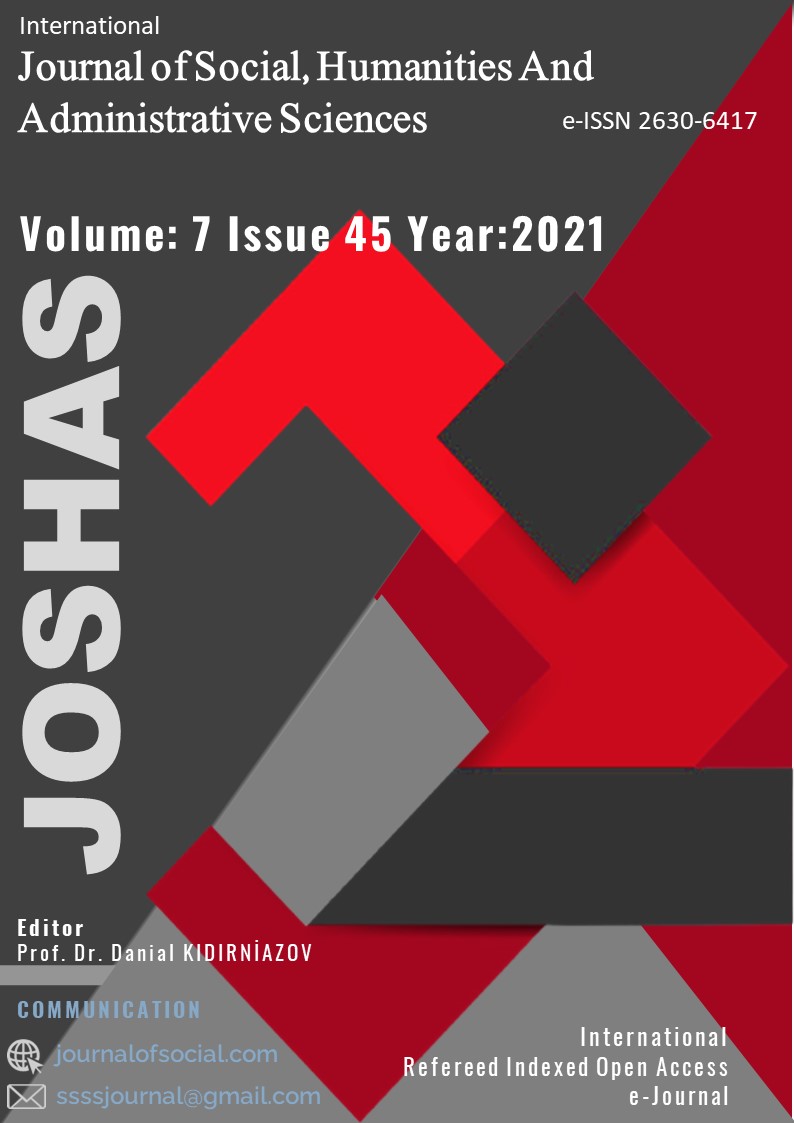Author :
Abstract
Bu makalede, özgürlüğü farklı açılardan ele alan varoluşçu filozoflardan Kierkegaard ve Nietzsche’nin düşünceleri değerlendirilecektir. Varoluşçu felsefenin kurucusu olarak nitelendirilen Kierkegaard, kendi düşüncesini benliğin bir sentez oluşu imkânından hareketle bireyin özgürlüğü ve seçimleri üzerine kurmuştur. Diğer taraftan, bireyin gerçek seçimleri umutsuzluk ve kaygı içerisinde ya/ ya da mantığında temellenerek estetik ve etik varoluş evrelerinde, sonsuz teslimiyet, iman ve Tanrı ilişkisinde ise kendini dini varoluş evresinde göstermektedir. Birey, ait olduğu varoluş alanındaki özgürlüğünü farklı şekillerde ve düzeylerde ortaya koyarak kendi benliğini inşa etmektedir. Nietzsche ise, insanın özgürlüğüne giden yolda Kierkegaard’dan farklı olarak nihayetinde sonsuz teslimiyet ile ulaşılan Tanrı ve ona ait değerler yerine kendi değerlerini özgür bir biçimde yaratabilen üstinsanı, oluşu ve yaşamı kendi felsefesinin merkezine almıştır. Nietzsche felsefesinde, insanın yaşamını sürü insanına ait olan ve insanın kendi olmasını engelleyen bütün değerlerden arındırarak özgür bir biçimde yaşamın tüm yönleriyle evetlenmesinin gerekliliğini ortaya koyar. Sonuç olarak, her iki düşünürün felsefesinde de özgürlük insanın kendi benliğini oluşturmasında önemli bir unsur olarak karşımıza çıkmaktadır. Varoluşun gerektirdiği şekliyle insanın kendi benliğini seçebilmesi ve ortaya koyabilmesi özgürlük ile mümkün olmaktadır. Bu doğrultuda makalenin amacı, Kierkegaard ve Nietzsche’nin özgürlük hakkındaki düşüncelerini varoluşçu felsefe açısından karşılaştırmaktır.
Keywords
Abstract
In this article, the thoughts of existentialist philosophers Soren Kierkegaard and Friedrich Nietzsche who discuss freedom from different perspectives will be evaluated. Described as the founder of existential philosophy, Kierkegaard built his own thought on the freedom and choices of the individual based on the possibility that the self is a synthesis. On the other hand, the real choices of the individual grounded in hopelessness and anxiety and/or logic are presented in the aesthetic and ethical existence stages, while in the eternal surrender, faith, and God relationship, they are presented in the religious existence stage. The individual constructs their own self by revealing their freedom in different ways and levels in the field of existence to which they belong. On the other hand, Nietzsche, unlike Kierkegaard, placed the superman, being and life, who can create their own values freely on the way to human freedom, in the center of his philosophy instead of God and his values, which are ultimately reached through eternal surrender. In his philosophy, Nietzsche reveals the necessity of freeing the life of man from all the values that belong to the herd people and preventing him from being himself and affirming it freely with all aspects of life. As a result, in the philosophies of both thinkers, freedom appears as an important element in the creation of one's own self. Being able to choose and reveal oneself as required by existence is possible with freedom. In this direction, the purpose of the article is to compare the thoughts of Kierkegaard and Nietzsche on freedom in terms of existential philosophy.
Keywords
- Cauly, O. (2006) Kierkegaard, Çev. Işık Ergüden, Ankara: Dost Kitabevi.
- Cauly, O. (2006) Kierkegaard, Çev. Işık Ergüden, Ankara: Dost Kitabevi. Cevizci, A. (1999) Felsefe Sözlüğü, İstanbul: Paradigma Yayınları.
- Çelebi, V. (2017) Kierkegaard ve Jaspers’ın Varoluş Felsefesinde Akıl, Din ve İman İlişkisi, Temaşa Erciyes Üniversitesi Felsefe Bölümü Dergisi, Sayı.7, 101-123.
- Danto, A. (2002) Nietzsche Hayatı, Eserleri ve Felsefesi, Çev.Ahmet Cevizci, İstanbul: Paradigma Yayınları. Güçlü, A. vd., (2003) Felsefe Sözlüğü, Ankara: Bilim ve Sanat Yayınları.
- Kaag, J, (2019) Nietzsche İle Yürümek, Çev. Sibel Atam, İstanbul: Ren Kitap Yayınları. Kardeşler, K. (2017) Tanrı Öldü, Ankara: Yason Yayınevi.
- Kierkegaard, S, (2019) Ölümcül Hastalık Umutsuzluk, Çev. M.Mukadder Yakupoğlu, Ankara, Doğu Batı Yayınları.
- Kierkegaard, S. (2020) Baştan Çıkarıcının Günlüğü, Çev. Nur Beier, İstanbul: Türkiye İş Bankası KültürKierkegaard, S. (2013) Evliliğin Estetik Geçerliliği, Çev. İbrahim Kapaklıkaya, İstanbul: Qraf Yayınları.
- Kierkegaard, S. (2013) Kaygı Kavramı, Çev. Türker Armaner, İstanbul: Türkiye İş Bankası Kültür Yayınları. Kierkegaard, S. (2020) Korku ve Titreme, Çev. İsmail Yerguz, İstanbul: Say Yayınları.
- Kierkegaard, S. (2020) Ya/Ya Da, Çev. Nur Beier, İstanbul: Alfa Yayınları.
- Kuçuradi, İ. (1967) Nietzsche ve İnsan, İstanbul: Yankı Yayınları.
- Nietzsche, F. (2018) Böyle Buyurdu Zerdüşt, Çev. Mert Hüseyin Ergül, İstanbul: Erasmus Yayınları. Nietzsche, F. (2014) Ecco Homo, Çev. Tolga Eraslan, İstanbul: Sis Yayıncılık.
- Nietzsche, F. (2003) Şen Bilim, Çev. Levent Özşar, Bursa: Asa Kitabevi.
- Sartre, J. P. (1997) Varoluşçuluk, Çev. Asım Bezirci, İstanbul: Say Yayınları.
- Skirbekk, G., Gilje, N. (2006) Antik Yunan’dan Modern Döneme Felsefe Tarihi, Çev. Emrah Akbaş-Şule Mutlu, İstanbul: Kesit Yayınları.
- Steiner, R. (2004) Nietzsche Özgürlük Savaşçısı, Çev. Sevinç Çekli, İstanbul: Omega Yayınları.
